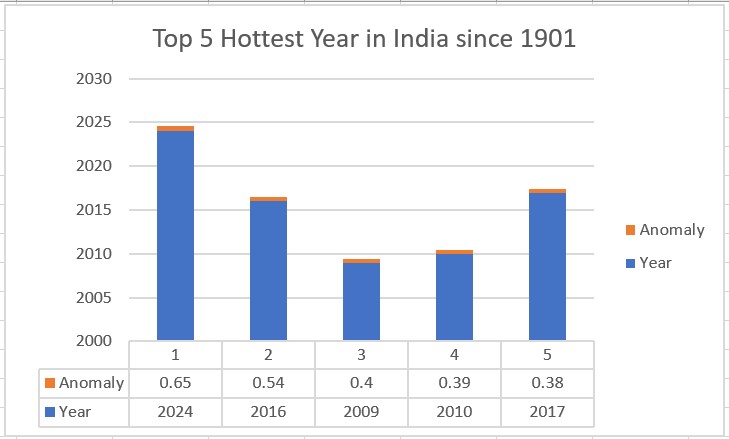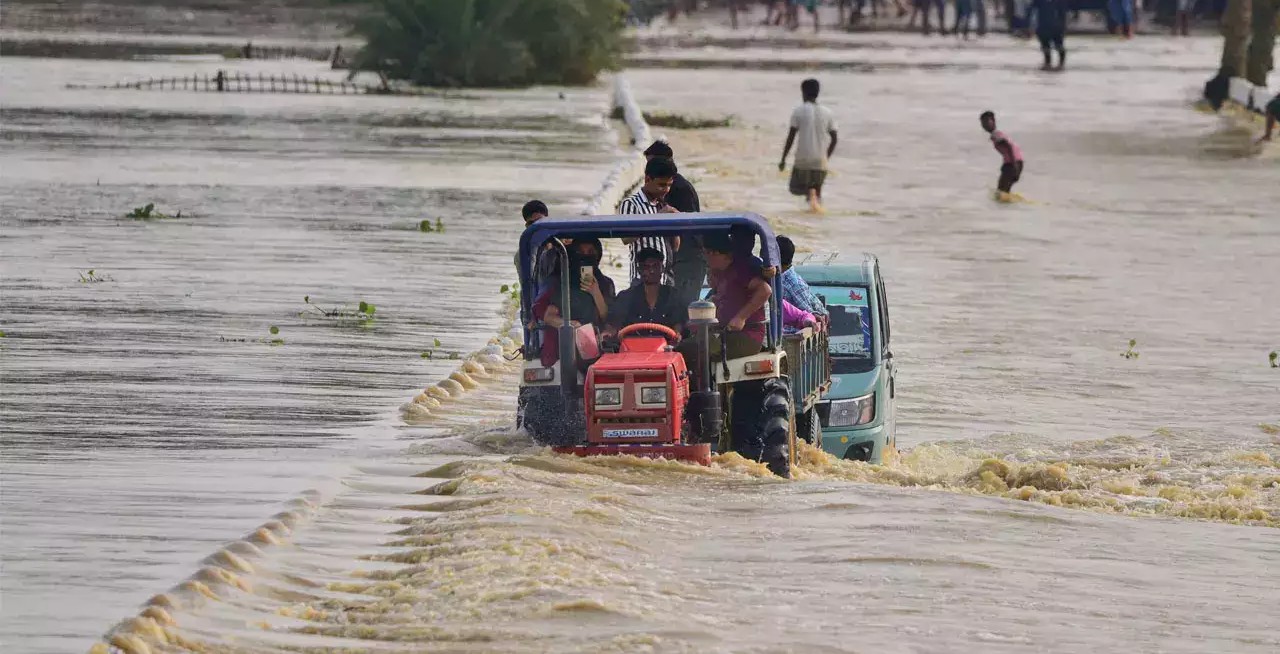2024 is India's hottest year on record as climate change drives temperature surge
2024 has been the hottest year for India since 1901, declared India Meteorological Department. The annual mean temperature was recorded at 25.75°C which was 0.65°C above the long-term average (1991-2020 period).
By Editorial Team / Jan 3, 2025

Image Source: Prime Progress
2024 has been the hottest year for India since 1901, declared India Meteorological Department. The annual mean temperature was recorded at 25.75°C which was 0.65°C above the long-term average (1991-2020 period).
According to state-run weather agency, the average mean temperature for the last three months of the year (October-December) was also the warmest on record. Additionally, October recorded steepest rise in the temperature throughout the year and settled above average by 1.23°C, becoming hottest October month in the last 123 years.
2024 has surpassed 2016, the previous warmest year with an anomaly of 0.54°C. The steep surge in the annual air surface temperature was registered on account of super El Niño in the Pacific Ocean. The oceanic phenomenon is known warming of the Pacific waters, which then effects the weather across the globe.

However, the effect of El Niño was aggravated due to human caused global warming. The difference of 0.11°C in the average mean temperatures between 2024 and 2016 resonates the growing impact of climate change.
“Off late, there has been an increasing trend in the annual mean air temperature due to climate change. We have seen similar conditions in 2024, which has been the warmest year ever, with an anomaly of 0.65°C. 2025 would also continue to witness warming trends,” said Mrutyunjay Mohapatra, Director General, IMD.

Citing similar views, Mahesh Palawat, Vice President – Meteorology and Climate Change, Skymet Weather said, “While El Niño and La Niña will continue to make appearance at regular intervals but we can now clearly see an increasing trend of global temperatures due to climate change. Climatic patterns are have shown a shift, as we now see prolonged summer conditions while winters are shrinking. Climate adaptation and mitigation is the only way ahead to reverse this trend. Otherwise, we will continue to witness extreme weather events with more intensity and frequency.”
India is in complete sync with rise in average global temperatures. Several meteorological agencies have already indicated towards 2024 being the hottest year on record that might even exceed the 1.5°C of warming above the pre-Industrial levels (1850-1900), the limit set by the Paris Agreement.
“Today I can officially report that we have just endured a decade of deadly heat. The top ten hottest years on record have happened in the last ten years, including 2024,” said António Guterres, Secretary-General of United Nations in his recent message.
The globally warmest record will take over 2023 which had recorded a rise in the global temperatures by 1.45°C.
Highest Minimum Temperature: A dangerous trend for India
Night temperatures were worst affected this year, with annual minimum temperature also being highest ever since 1901 with an anomaly of 0.90°C. Seasonwise, barring pre-Monsoon season all the other three seasons - winter season (January-February), Monsoon (June to August) and post-Monsoon season (October to December) recorded highest minimum temperatures on record.
Out of 12 months, four months (July to October) saw highest night time temperatures, while February recorded second highest minimum temperatures in the last 123 years.
According to experts, the steep increase in the nighttime temperature is a dangerous trend for India, exposing millions to series of health impacts. Nighttime temperatures have increased even more rapidly than daytime temperatures as the world heats up, as per a report by Climate Central and Climate Trends.
World Health Organisation (WHO) also recommends 24C temperature for proper sleep. In the country like India, majority of population still do not have access to proper cooling mechanism. A lack of quality sleep can have a range of associated impacts, including increasing the risk of many physical and mental health problems, impairing cognitive functioning, negatively affecting children’s brain development, learning and school performance, and making workplace accidents more likely. Hot nights are also associated with increased mortality risks, with a study showing that the relative mortality risk on days with hot nights can be 50% higher than on days with non-hot nights. These climate-change-driven increases in nighttime temperatures have unequal impacts on sleep and health both within and between countries due to many factors including age, gender and access to air conditioning.
Climate Change Global Warming 2024 Hottest Year in India Weather in India Climate Crisis

